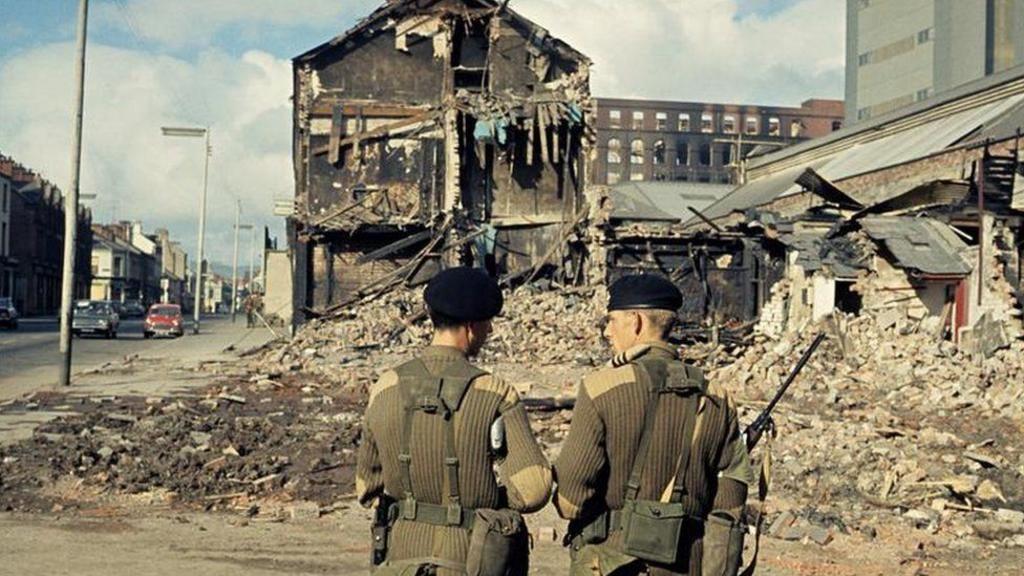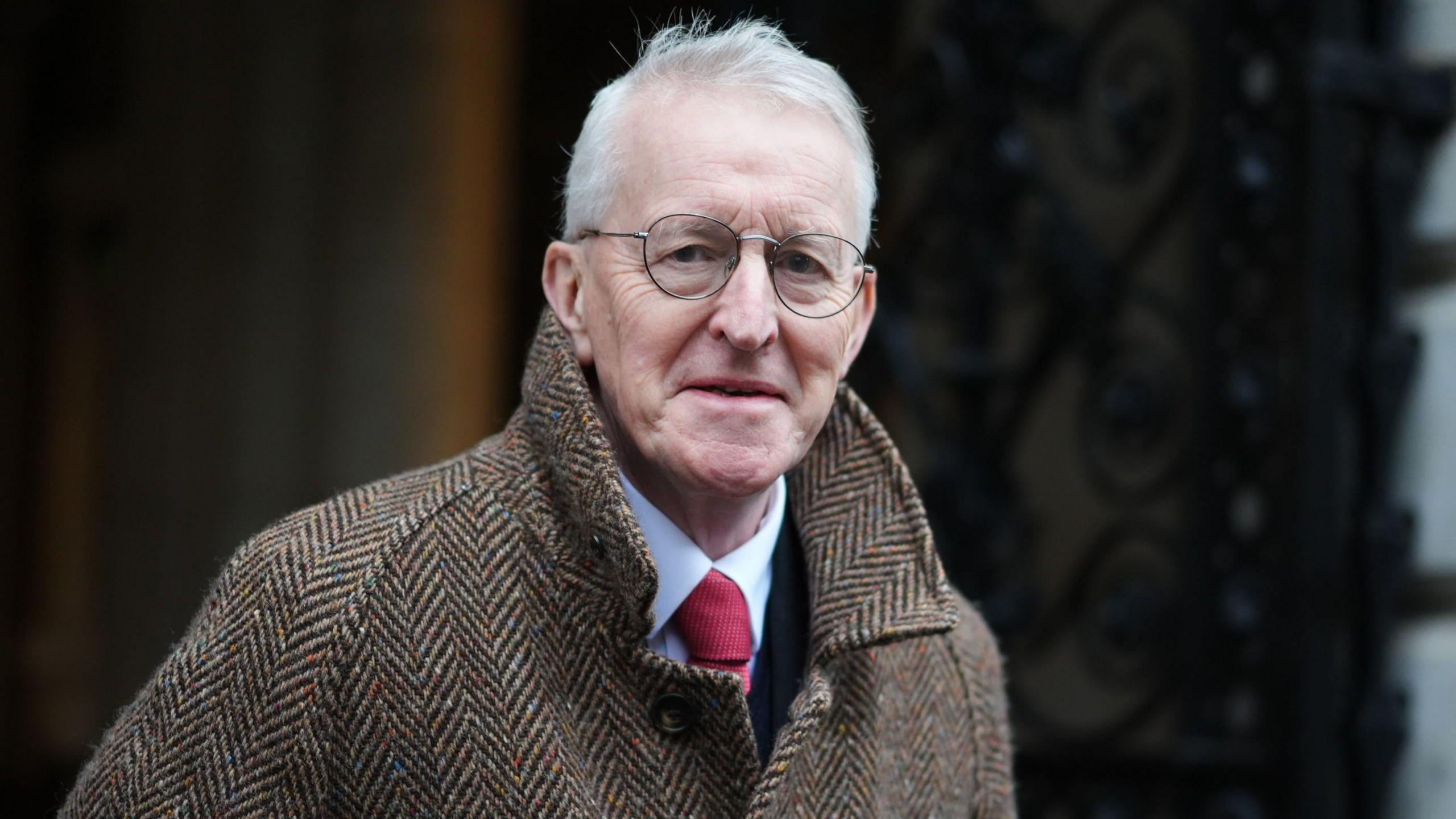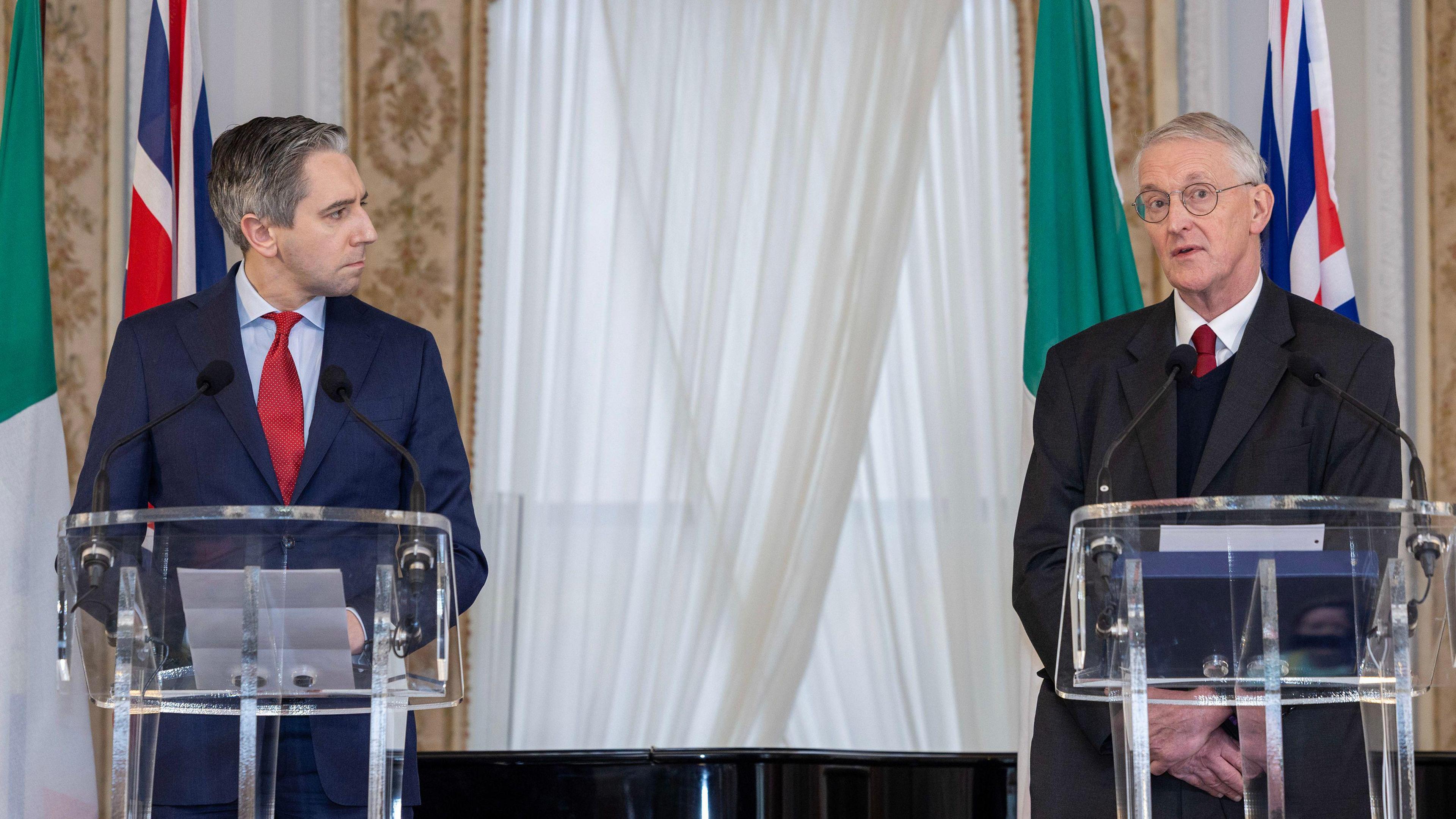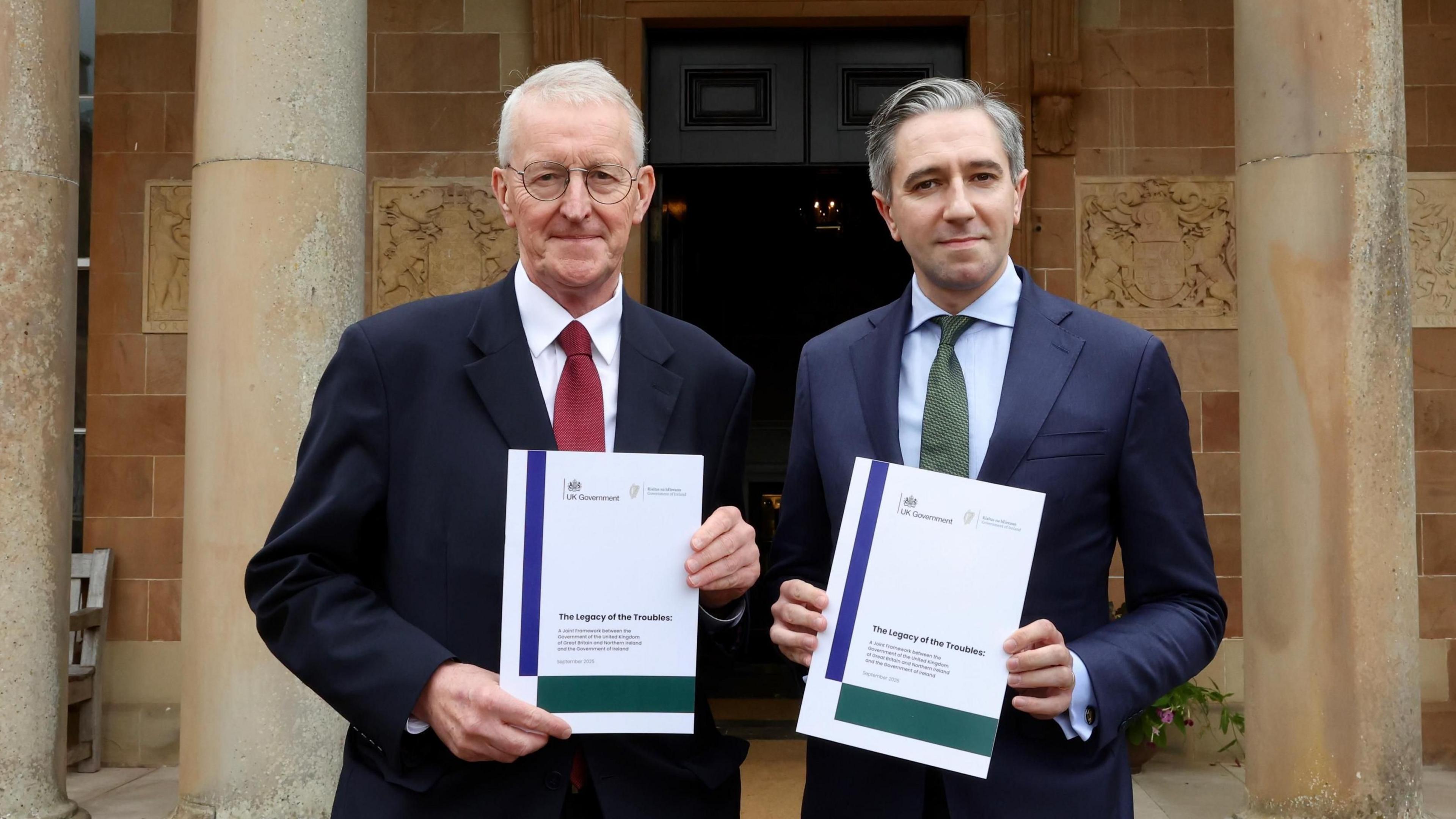New legacy bill passes next stage at Westminster

The proposed legislation, currently undergoing its second reading in the House of Commons, aims to replace the controversial Troubles legacy act passed under the last Conservative government.
- Published
Nothing in the government's new Troubles legacy legislation is a direct threat to national security, the Northern Ireland secretary has said.
Hilary Benn was responding to questions from MPs as they debated the bill for more than three hours during its second reading in the House of Commons.
The bill, which comfortably passed its latest stage by 320 votes to 105, includes plans for a commission to investigate Troubles-related killings and a separate information recovery body.
The measures were agreed in a joint framework with the Irish government.
Last week, nine senior former military officers raised concerns over the bill and warned that "lawfare" had become a "direct threat to national security".
Asked about the open letter in The Times newspaper during the debate on Tuesday, Benn told MPs: "I don't agree with that assessment."
'No threat' to national security
The secretary of state said there was "nothing in this bill that can be described as a direct threat to national security".
He also said the generals who signed the letter "do not call for immunity" - a controversial part of the previous Conservative government's legislation.
Benn was responding after the letter was raised by Conservative MP Mark Francois.
He questioned if the proposed legislation "is as good as the secretary of state would have the House believe" given the remarks in the correspondence.
Labour's bill seeks to replace the contentious Legacy Act, which introduced a ban on inquests and civil actions related to Troubles-era incidents.
The new plan involves a Legacy Commission to investigate Troubles-related killings, a separate information recovery body, and a dedicated legacy unit within An Garda Síochána (Irish police).
The measures were agreed in a joint framework with the Irish government.
A separate package of protections for veterans is also being proposed by the UK government.
But some MPs, including Northern Ireland MPs, have said the measures do not go far enough and want to amend the bill to include stronger protections in law.

Northern Ireland Secretary Hilary Benn has been defending the new legislation
Speaking in the Commons, Benn said that "time is running out" to resolve the "unfinished business" of the Troubles.
He rejected suggestions the Irish government had been given "any control or veto" over the work of the Legacy Commission.
The Northern Ireland secretary also said a "Victims and Survivors Advisory Group" to be set up for the commission will not include former paramilitaries.
Traditional Unionist Voice (TUV) leader Jim Allister asked Benn to point out where in the bill this was stated.
The secretary of state responded: "Anyone who was previously involved in paramilitary activity will not be appointed to the victims and survivors group.
"I am giving the House that assurance as the secretary of state."
Conservative MP Alex Burghart, the shadow secretary of state for Northern Ireland, said Labour's bill "reopens the door to vexatious litigation against veterans".
"The legislation before us today will perpetuate disappointment for victims and despair for veterans," he added.
What have NI MPs said about the plan?
Speaking during the debate, Democratic Unionist Party (DUP) leader Gavin Robinson questioned the detail of the bill.
"Those innocent victims of Northern Ireland have heard this government promise to 'repeal and replace', and yet that's not what they're seeing," he said.
The MP argued there was "no specific protection for veterans" in the bill, saying the assurance was a "mirage".
He added: "Shame runs throughout the legacy of our past and governments' approach to it."
Social Democratic and Labour Party (SDLP) leader Claire Hanna said that "while legacy remains unresolved, it is like a fog around us".
"This bill isn't perfect, legislation rarely is, but we can't miss the opportunity to deal with legacy," she added.
"It is not about an obsession with the past. Getting this right is about an obsession with a non-violent and reconciled future."
Earlier the Ulster Unionist Party's (UUP) MP for North Antrim, Robin Swann, said he will be voting against the bill in its current form.
"We will seek to introduce and support further amendments to ensure this bill is properly scrutinised and improved," he said.
"Innocent victims must remain at the centre of any legacy legislation - its purpose must be to serve and protect those innocent victims."
What is in the legacy plan?

Tánaiste (Irish deputy PM) Simon Harris and NI Secretary Hilary Benn met in Dublin on Monday
The government said the deal involves a package of protections for veterans, including "a protection in old age".
The Legacy Commission, born out of the Independent Commission for Reconciliation and Information Recovery (ICRIR), will have independent oversight.
The new commission will also be "under a statutory duty not to duplicate the work of any previous investigations unless there are compelling reasons to do so".
It will have two new directors for investigations.
The commission must also "take into account the health and well-being of potential witnesses at all times".
Inquests, which had commenced but had not ended before the current Legacy Act came into force last year, will be restored.
Others which had not begun will be reviewed to identify a way forward.
Killings in England 'remain unsolved'
Meanwhile, the Home Office has confirmed that 77 Troubles-related killings in England remain unsolved.
Dan Jarvis, UK Security Minister, and a former member of the Parachute Regiment who served in Northern Ireland, said that the proposed new legacy legislation "guarantees no terrorist will be able to claim immunity from prosecution".
He continued that this is "while ensuring there is an effective and wholly independent Legacy Commission to conduct investigations that families right across the United Kingdom can have confidence in".
Related topics
- Published14 October

